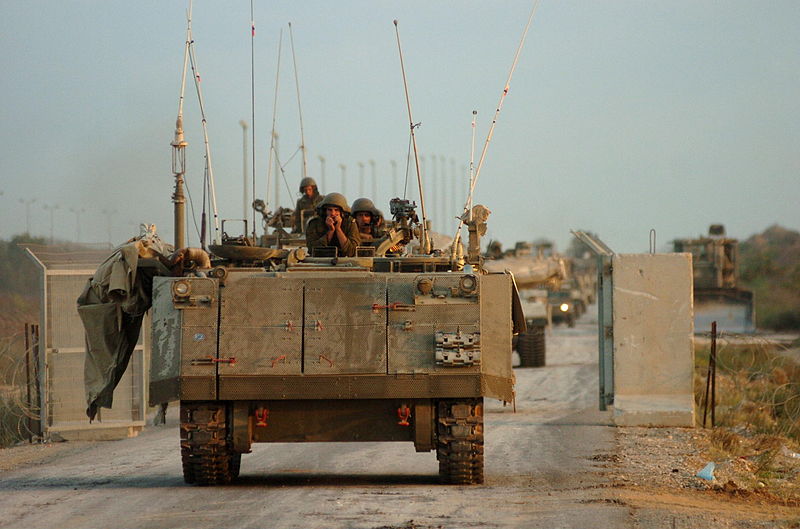Wasted Blood
Abu Ahmed Dagah, a 12-year-old boy, was shot while playing soccer. His small dead corpse symbolizes the loss of innocence that the people of Israel and Gaza have both had to endure. On November 8th Israeli soldiers, going after a cache of explosives near the border, ended a nearly two week long respite in hostilities by storming across the border with four tanks and a bulldozer. In the resulting firefight between Hamas and IDF troops, the child paid the price.
These little skirmishes are profoundly disturbing, but regrettably are not rare. In the following days more Palestinian civilians were killed and several Israeli soldiers were injured. But such violence did not need to escalate into a full blown war. If the Israeli government really wanted to maintain peace, it would not have shot down Ahmed Al-Jabari, the head of Hamas’ military wing, literally hours after he had received a draft of a permanent truce agreement with Israel. Israeli peace negotiator Gershon Baskin, the man who secured Gilad Schalit’s safety, admitted to Haaretz, “His [Jabari's] assassination killed the possibility of achieving a truce."
To understand why the war began we have to look back to 2009’s Operation Cast Lead in which 1387 Palestinians, including 320 minors and 109 women, and nine Israelis were killed. As Haaretz reports:
“Before Operation Cast Lead, on the eve of the 2009 election, public opinion polls were predicting that Labor, under his (Barak’s) leadership, would get between six and eight Knesset seats. Immediately after the operation, which as defense minister Barak conducted, his popularity soared and the polls predicted 15 or 16 Knesset seats for Labor. In the end the party got 13.”
In other words, this war like the last one is politically motivated. The decision to escalate did not come at a time of exceptionally high rocket fire or cross border violence. In fact, Hamas leaders had been making efforts to secure peace. As International Business Times reports:
“According to Baskin, Jabari was "not an angel and not a righteous man of peace," but had however reached the conclusion that the continuous hostilities between Hamas and Israel were detrimental to both parties and to Gaza's people.”
Prime Minister Benjamin Netanyahu conveniently chose a war just two months before the next Israeli election. According to Baskin, who had been negotiating with Jabari and the Egyptian government on the text of a truce, “Those who made the decision must be judged by the voters, but to my regret they will get more votes because of this."
Now Israeli defense officials argue that Jabbari was a “terrorist” and thus his killing would always be called for. First of all, the label “terrorist” has been so overused for political propaganda that it can be used to justify just about anything. As Nelson Mandela could attest, the terrorists of today are the nobel laureates of tomorrow. But even if we assume Jabarri was the world’s most evil, blood thirsty terrorist, he was also Hamas’ primary peace negotiator. If you come to the bargaining table in good faith, you do not hide a machine gun under your seat.
Netanyahu threw away the opportunity to make the lives of both Israelis and Gazans better. As often happens during a war, the country in nationalistic fervor rallies behind its government, revelling in vague notions of patriotism; “Bibi” stands to gain in the upcoming January 22 election. According to CNN, 90 percent of the Israeli population supports the operation. Furthermore, a Panels poll for the Israeli Center for Political Training reported 78 percent of Israelis support Netanyahu’s Oscar worthy performance. With this brilliant political move, Netanyahu has forced Yair Lapid and Shaul Mofaz, rivals from the Labor & Yesh Atid and Kadima parties, to serve up his praises in the fear of being seen as unpatriotic. As Yossi Verter of Haaretz writes the two are, “wandering from one television or radio studio to another, doomed to singing the praises of the prime minister and defense minister into eternity.”
No one can deny the people of Israel have faced constant rocket attacks and the pervasive sense of danger that blasts from them. On the other hand, no one can deny the malnutrition, the third world health conditions, the unemployment, and the hopelessness that has resulted from Israel’s blockade of Gaza. The people of both Gaza and Israel live in constant fear. Though it must be noted, Palestinians have statistically born the overwhelming brunt of the violence (161 dead Gazans, including 71 civilians vs. five Israelis) . These are the horrific realities of a seemingly never ending conflict going back to 1948 and beyond. If we have learned anything, it is that violence is clearly the answer to nothing (except Netanyahu’s scheme to control Parliament). On the brink of a truce agreement, the Israeli government chose violence and will probably be rewarded for it, but this short term election cycle thinking will never achieve anything. Yesterday, it was Thanksgiving and well over a hundred people have been killed in a needless offensive. The ceasefire seems to be holding. Let us at least be thankful for that.

